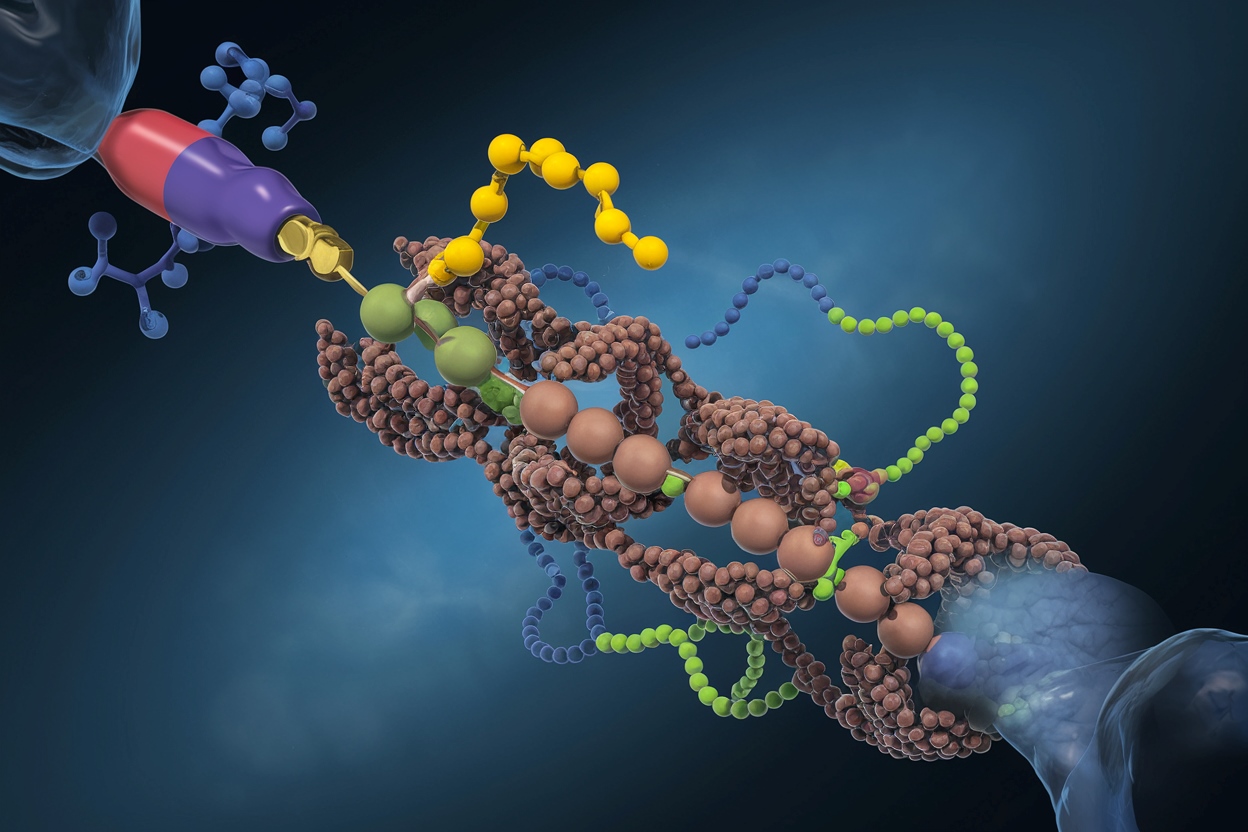
What is ubiquitination? Ubiquitination is a process where a small protein called ubiquitin attaches to a target protein. This attachment can signal for the protein's degradation, alter its cellular location, affect its activity, or promote or prevent protein interactions. Why is ubiquitination important? It plays a crucial role in many cellular processes, including the cell cycle, DNA repair, and response to stress. How does it work? The process involves three main steps: activation, conjugation, and ligation, facilitated by enzymes known as E1, E2, and E3. Why should you care? Understanding ubiquitination can help in developing treatments for diseases like cancer, neurodegenerative disorders, and infections. Dive into these 35 facts to grasp the significance and complexity of ubiquitination.
Key Takeaways:
- Ubiquitination is a crucial cellular process that helps regulate protein activity, DNA repair, and cell cycle. It also plays a role in diseases like cancer and Alzheimer's.
- Research on ubiquitination has led to new discoveries and potential therapies, including advanced imaging techniques and the exploration of ubiquitin-like proteins for treatments.
What is Ubiquitination?
Ubiquitination is a complex cellular process involving the attachment of ubiquitin, a small regulatory protein, to other proteins. This process plays a crucial role in various cellular functions, including protein degradation, DNA repair, and cell cycle regulation. Let's dive into some fascinating facts about ubiquitination.
- Ubiquitin is a small protein consisting of 76 amino acids.
- The process of ubiquitination was first discovered in the late 1970s.
- Ubiquitination involves three main enzymes: E1 (activating enzyme), E2 (conjugating enzyme), and E3 (ligase enzyme).
- The attachment of ubiquitin to a target protein usually marks it for degradation by the proteasome.
- Ubiquitination can also regulate protein activity, location, and interactions.
- There are different types of ubiquitination, including monoubiquitination and polyubiquitination.
- Polyubiquitination involves the attachment of multiple ubiquitin molecules in a chain.
- The type of ubiquitin chain linkage can determine the fate of the target protein.
- Lysine 48-linked ubiquitin chains typically signal for protein degradation.
- Lysine 63-linked ubiquitin chains are often involved in DNA repair and signaling pathways.
The Role of Ubiquitination in Cellular Processes
Ubiquitination is essential for maintaining cellular homeostasis and regulating various cellular processes. Here are some key roles of ubiquitination in cells:
- Ubiquitination helps regulate the cell cycle by controlling the degradation of cyclins.
- It plays a crucial role in DNA repair by modifying proteins involved in the repair process.
- Ubiquitination is involved in the regulation of transcription factors, which control gene expression.
- It helps in the removal of damaged or misfolded proteins, preventing their accumulation.
- Ubiquitination can modulate the activity of membrane receptors, affecting cell signaling.
- It is involved in the immune response by regulating the degradation of viral proteins.
- Ubiquitination plays a role in the development and differentiation of cells.
- It helps in the regulation of apoptosis, the programmed cell death process.
- Ubiquitination is involved in the response to oxidative stress by targeting damaged proteins for degradation.
- It plays a role in the regulation of autophagy, a cellular process that degrades and recycles cellular components.
Ubiquitination and Disease
Dysregulation of ubiquitination can lead to various diseases, including cancer, neurodegenerative disorders, and immune system diseases. Here are some facts about the connection between ubiquitination and disease:
- Mutations in ubiquitin-related genes can lead to the development of cancer.
- Ubiquitination is involved in the pathogenesis of neurodegenerative diseases like Parkinson's and Alzheimer's.
- Defects in the ubiquitin-proteasome system can result in the accumulation of toxic proteins in cells.
- Ubiquitination plays a role in the regulation of inflammation and immune responses.
- Some viruses can hijack the ubiquitination machinery to evade the immune system.
- Ubiquitin ligases, the E3 enzymes, are often found to be mutated or dysregulated in cancers.
- Ubiquitination is involved in the regulation of tumor suppressor proteins.
- Inhibitors of the proteasome, which degrade ubiquitinated proteins, are used as cancer therapies.
- Ubiquitination can affect the stability and function of oncogenes, proteins that promote cancer.
- Research is ongoing to develop drugs that target specific components of the ubiquitination pathway.
Advances in Ubiquitination Research
Recent advances in ubiquitination research have provided new insights into its mechanisms and potential therapeutic applications. Here are some exciting developments:
- Scientists have identified new types of ubiquitin modifications, such as SUMOylation and NEDDylation.
- Advanced imaging techniques have allowed researchers to visualize ubiquitination in live cells.
- High-throughput screening methods are being used to identify new ubiquitin-related drug targets.
- Researchers are exploring the use of ubiquitin-like proteins in therapeutic applications.
- The development of CRISPR technology has enabled precise manipulation of ubiquitin-related genes for research purposes.
The Final Word on Ubiquitination
Ubiquitination plays a crucial role in regulating various cellular processes. From protein degradation to DNA repair, this process ensures cells function properly. Without it, cells could accumulate damaged proteins, leading to diseases like cancer and neurodegenerative disorders. Understanding ubiquitination helps researchers develop new treatments for these conditions.
Scientists continue to uncover new aspects of ubiquitination, revealing its complexity and importance. As research progresses, the potential for medical advancements grows. Staying informed about these discoveries can provide valuable insights into health and disease management.
In short, ubiquitination is a key player in maintaining cellular health. Its impact on medical research and potential therapies cannot be overstated. Keep an eye on future developments in this field, as they promise to bring exciting breakthroughs.
Frequently Asked Questions
Was this page helpful?
Our commitment to delivering trustworthy and engaging content is at the heart of what we do. Each fact on our site is contributed by real users like you, bringing a wealth of diverse insights and information. To ensure the highest standards of accuracy and reliability, our dedicated editors meticulously review each submission. This process guarantees that the facts we share are not only fascinating but also credible. Trust in our commitment to quality and authenticity as you explore and learn with us.
